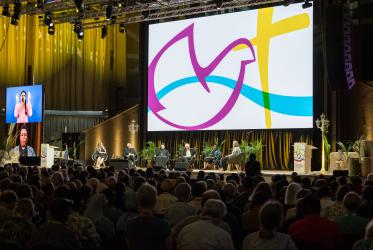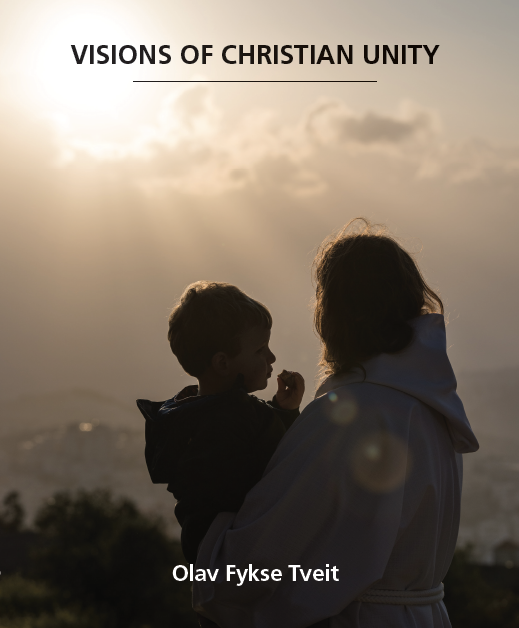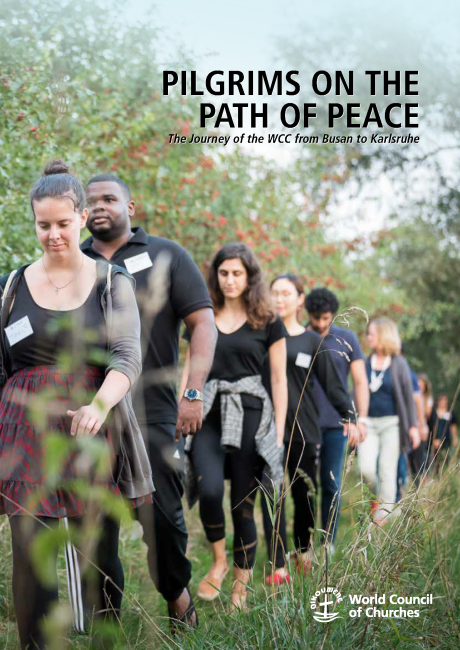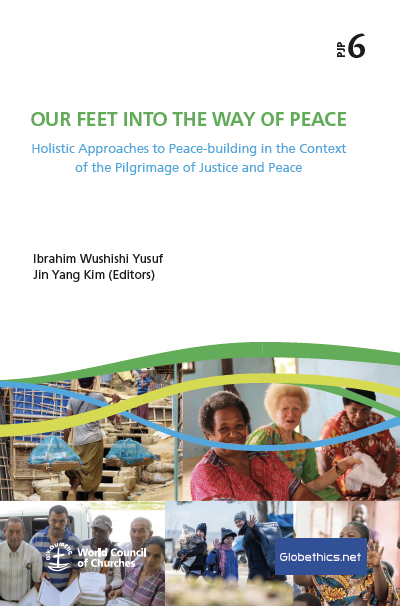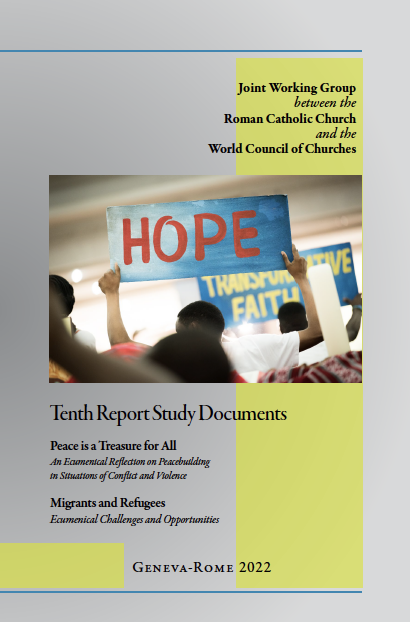Displaying 161 - 180 of 1737
An evening of welcome and a historic pilgrimage along the Rhine
06 September 2022
Brunnen: un puits d’initiatives inspirées par la foi
02 September 2022
Brunnen: a well of faith-inspired initiatives
01 September 2022
Visions of Christian Unity
24 August 2022
Pilgrims on the Path of Peace
The Journey of the WCC from Busan to Karlsruhe (Illustrated)
24 August 2022
Seek Peace and Pursue It: PJP Series 4
Reflections on the Pilgrimage of Justice and Peace in Europe
22 August 2022
Our Feet into the Way of Peace: PJP Series 6
Holistic Approaches to Peace-building in the Context of the Pilgrimage of Justice and Peace
19 August 2022
Hate Speech and Whiteness: PJP Series 5
Theological Reflections on the Journey Toward Racial Justice
19 August 2022
Towards an Ecumenical Theology of Companionship: PJP Series 3
A Study Document for the Ecumenical Pilgrimage of Justice and Peace
19 August 2022
Tenth Report Study Documents
19 August 2022


